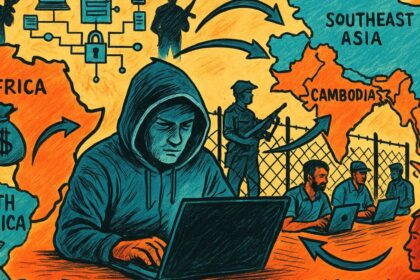UN Warns Asia-Based Cybercrime Syndicates Are Spreading Globally, Calling Them ‘a Cancer’ on Society
The United Nations has issued a stark warning about the rapid global spread of Asia-based cybercrime syndicates, describing their operations as a “cancer” that is metastasizing beyond the region and threatening international security, financial stability, and human rights.
In a newly released report, the UN Office on Drugs and Crime (UNODC) revealed that organized cybercriminal networks, originally concentrated in Southeast Asia, are increasingly extending their influence across continents. These sophisticated groups are allegedly involved in a range of illicit activities including online scams, identity theft, money laundering, and human trafficking through online platforms.
According to the report, cybercrime syndicates have evolved from local operations into vast, international criminal enterprises by exploiting digital vulnerabilities and weak law enforcement coordination between countries. The UN warns that these networks are now targeting victims worldwide through phishing schemes, fake investment platforms, and romance scams, often operating out of unregulated economic zones and using cryptocurrency to mask their financial trails.
“The threat posed by these cybercrime groups is systemic,” said Ghada Waly, Executive Director of the UNODC. “They not only undermine digital trust but also exploit vulnerable individuals, destabilize financial systems, and even fund other forms of transnational crime.”
One particularly concerning trend noted in the report is the use of forced labor in scam centers across parts of Asia, where victims—often trafficked from other countries—are compelled to carry out cyber scams under threat of violence or confinement. The UN has called this a human rights emergency, urging governments to work together to dismantle these criminal networks and rescue the exploited workers.
The expansion of these syndicates is being fueled by the lack of effective cross-border cooperation and the growing sophistication of digital tools available to criminals. The report highlights the urgent need for stronger international frameworks and joint cybersecurity enforcement initiatives.
Security analysts warn that without coordinated global action, the scale and impact of cybercrime will continue to escalate, placing billions of people and businesses at risk. The UN is now pushing for enhanced regional collaboration, particularly among Asian nations, to clamp down on cybercrime operations at their source.
This alarming development arrives as more countries experience spikes in cyberattacks, with government agencies, financial institutions, and everyday internet users falling victim to increasingly elaborate digital schemes.
The UN’s findings serve as a call to action for governments, tech companies, and civil society to step up their efforts in securing cyberspace, protecting victims, and dismantling the dark networks operating behind the scenes.
Source : Swifteradio.com


